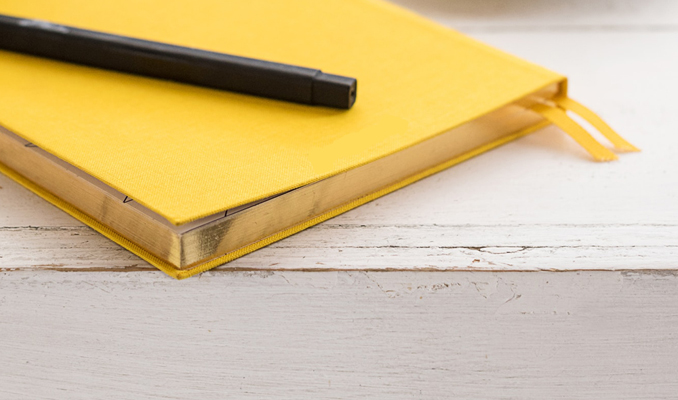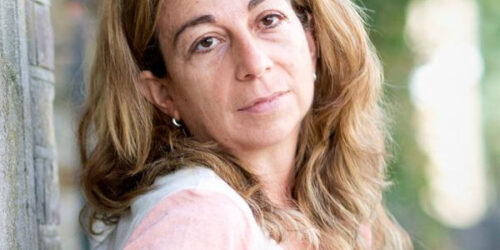
George Saunders once said, ‘when you read a short story, you come out a little more aware and a little more in love with the world around you’ …but what is the best way to start? We asked Lynne Bryan – writer, editor and creative writing tutor for NCW Academy, the Arvon Foundation and the University of East Anglia – for the most important advice she would offer when embarking on your first journey into the short story form.
Write lists
Lists of interesting words. Lists of characters. Lists of settings. Lists of animals: domestic and wild. Lists of plants: indoor and outdoor. Lists of chores: indoor and outdoor. Lists of actions. Lists of sporting activities. Lists of clothes. Lists of Prime Ministers. Lists of things that scare you, things that make you laugh and things that make you cry. Write a list of all the different kinds of ways you can cook a chicken or get a baby to drink from a bottle. Often the most daunting thing about writing a short story is starting, getting some words on the page. There’s a tendency to want to nail that opening from the first sentence and this can stop you from writing anything at all. List-making helps to get the writing mind working; it frees you up to play, to be a bit silly, to relax. Now use your favourite list or part of a list to start your story.
Don’t over-think word counts
Don’t worry too much about rules, about how long the perfect piece of flash fiction should be, or the perfect short story. I think story competitions are great, it’s good to have something to aim for, somewhere to send your work to, but sometimes/often stories won’t obey competition word-length rules. They just have to be the length they’re going to be. The more you actually write stories the more you’ll find what suits your voice. I can’t imagine the great American writer Lydia Davies producing a story which is as long as the stories of the great Canadian writer Alice Munro. Davies is happiest being pithy whilst Munro likes plenty of pages to roam around in.
Don’t censor yourself
Lots of writers are afraid to write about the domestic because it doesn’t seem glamorous or exciting enough. Many writers are afraid to write about working life because again it doesn’t seem glamorous or exciting enough; it’s just work. Some writers daren’t write about vampires because they actually haven’t lived the life of a vampire. They daren’t write from the point-of-view of a giraffe because they don’t know what it’s like to have an extremely long neck. Do not worry. Let yourself write about what you really want to write about. What interests you? What do you want to explore, to pull apart and understand more deeply, to rant about or laugh about? Eley Williams, winner of The 2018 Republic of Consciousness Prize, is passionate about language and the physical stuff of language – dictionaries, bookmarks, old books – and she’s written an entire collection Attrib. and other stories about this passion.
Read short stories!
You can’t write a short story without having a real feel for what a short story can be and do. Read Williams’ book (above) and other story collections, read stories in translation and classics from the past. Listen to the stories that have won the BBC National Short Story Award. Scour the internet for short stories, for example, try thewhitereview.org. Anthologies of short stories are often a good place to start because then you have many different approaches to story-making in one volume. Salt publish a collection of the best British short stories every year.
Tell more than one story
Finally, listen to the advice of another great American short-story writer Grace Paley. She believed that ‘almost every short story is an argument of some kind. You write it because you do not know something, you write what you do not know about, otherwise, you would not bother to write.’ She also said that ‘a story is made very often of two stories […] separately each story would be less interesting, and two stories together really make a third’.
About Lynne
 Lynne Bryan is the author of a short story collection, Envy At The Cheese Handout (published by Faber & Faber), and the novels Gorgeous and Like Rabbits (Sceptre). She has co-edited six anthologies of short prose, and her work has been broadcast on BBC Radio 4 and her story – ‘A Regular Thing’ – was made into an award-winning Danish short film. Her memoir Iron Man will be published by Salt in June 2020. Lynne has taught creative writing for the Arvon Foundation, Norwich University of the Arts and the University of East Anglia amongst others, and she has critiqued scripts for The Literary Consultancy. She was the co-ordinator of UEA’s summer school for teachers who teach creative writing and, for many years, helped run Words And Women, a literary organisation which supported women writers in the East of England.
Lynne Bryan is the author of a short story collection, Envy At The Cheese Handout (published by Faber & Faber), and the novels Gorgeous and Like Rabbits (Sceptre). She has co-edited six anthologies of short prose, and her work has been broadcast on BBC Radio 4 and her story – ‘A Regular Thing’ – was made into an award-winning Danish short film. Her memoir Iron Man will be published by Salt in June 2020. Lynne has taught creative writing for the Arvon Foundation, Norwich University of the Arts and the University of East Anglia amongst others, and she has critiqued scripts for The Literary Consultancy. She was the co-ordinator of UEA’s summer school for teachers who teach creative writing and, for many years, helped run Words And Women, a literary organisation which supported women writers in the East of England.
Lynne is an NCW Academy online course tutor. We have courses in fiction, crime, memoir, historical fiction, romantic fiction, creative non-fiction and poetry. Find out more →
‘A powerful new writer’ – Daily Telegraph
‘Bryan handles with assurance a wide range of narrative voices and stylistic devices that never slow the pace’ – The Times
Subscribe to the Writing Life podcast
Packed with advice and guidance from experienced writers and our course tutors.







